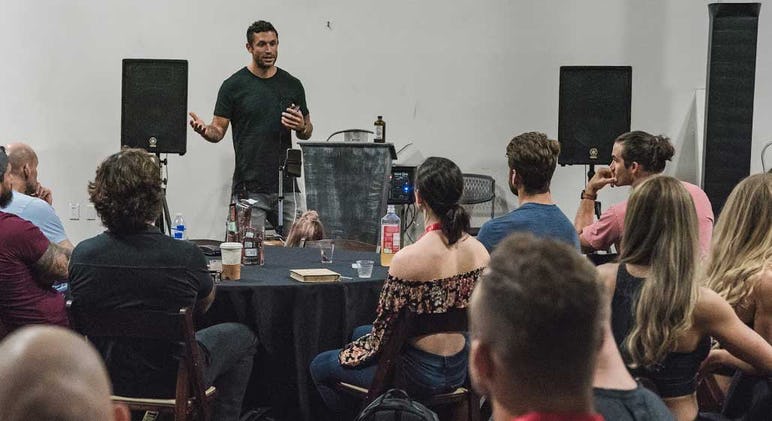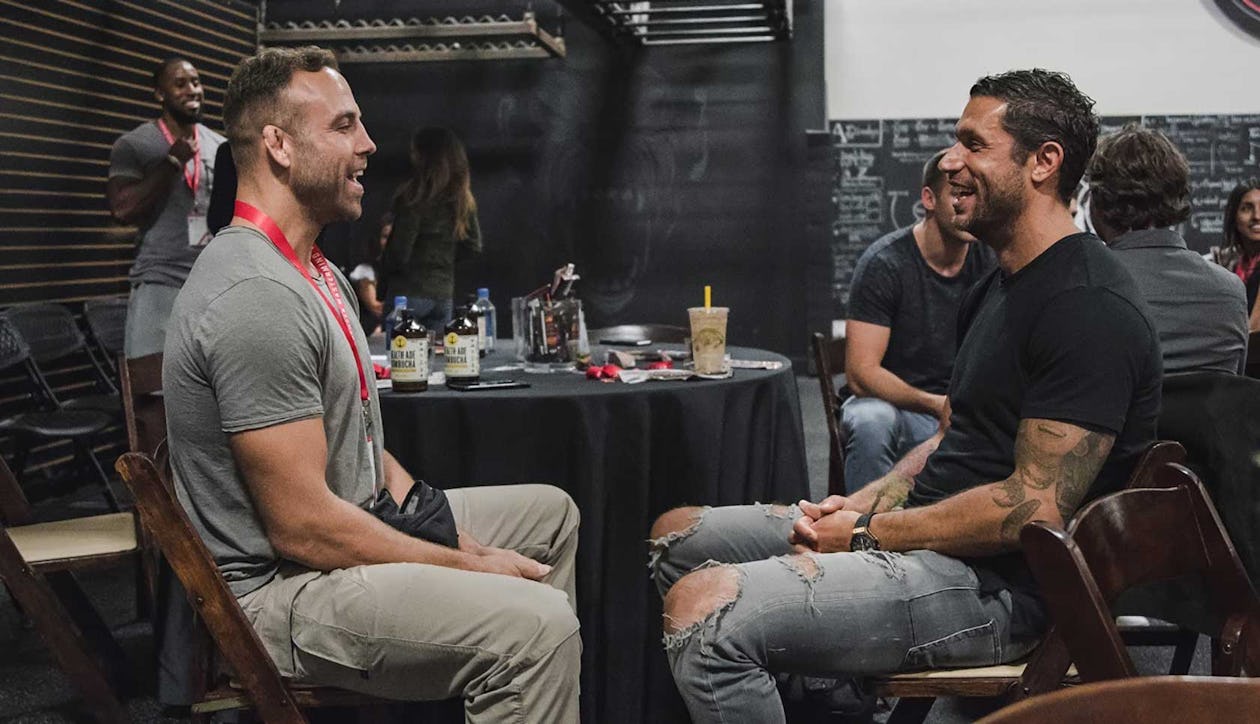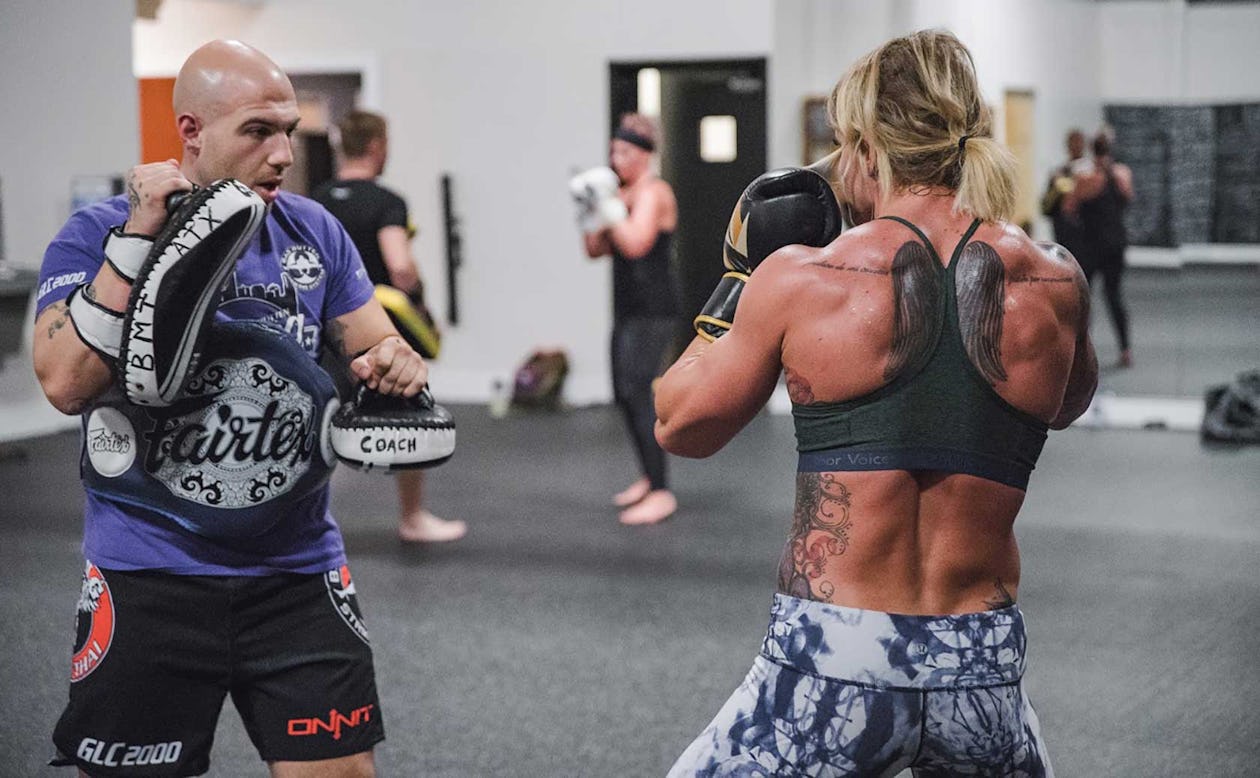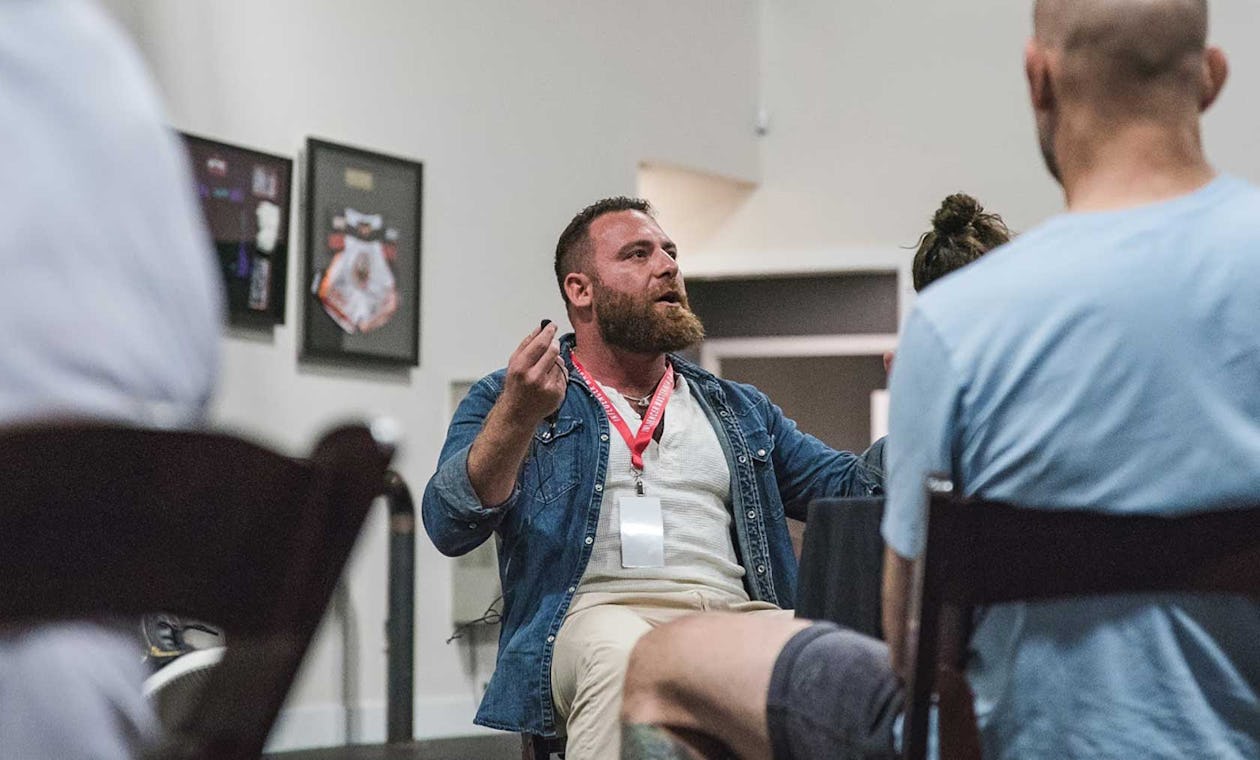While providing our customers with supplements, foods and equipment that elevate the pursuit of human optimization is an important part of our mission, the real strength of Onnit comes from our community. What began as a desire to push supplements past the status quo in 2010 has become a movement of empowered and proactive people.
It’s no secret that we love our athletes, followers, and fans and feel an immense responsibility to continue providing them with the tools they need. That includes finding new and exciting ways to develop and strengthen the community that drives us forward. As they say, leaders set the tone of a community, and without good leadership, a community will fail. So, this past weekend, we gathered 40 athletes, fitness professionals, and personalities at Onnit HQ to connect, empower, and inspire them to lead our community with greater authenticity and impact.
“Community leadership is the courage, creativity,
and capacity to inspire participation, development
and sustainability for strong communities.”
— Gustav Nossal
Covering topics ranging from leading an authentic life with Lewis Howes, to not to taking yourself too seriously with the ultimate jokester, JP Sears, our speakers challenged attendees (and each other) to discover their unique strengths and gifts—beyond those they were aware of when they first walked through our doors. The information exchanged that weekend was too important to remain within Onnit alone, so to our greater community at large, we offer you the top 5 things we learned in the hopes of creating conversation and further empowering you all.
1. Ditch Your Ego & Be Vulnerable
One of the strongest themes that ran throughout our conversations and keynote speakers was a reminder to be yourself, flaws and all. It sounds so simple but, in a world defined by likes and shares, it can be easy to lose track of your true self. Understand that real connections cannot be built upon a facade, and the power of community comes from the strength of personal connections.
Our first speaker, entrepreneur and best-selling author Lewis Howes, spoke about spending the first 30 years of his life focused on proving everyone wrong. He adopted a win-at-all-costs mentality that hid his sensitivity and, ultimately, restricted his ability to grow his business and his own development as a person. When he stopped trying to be perfect and started revealing the trauma in his past and the fear and pain he had long lived with, his life (and business) reached new heights. By allowing himself to be seen as human, he became more relatable, likable, and approachable. His connections with people strengthened. “I started sharing all my shortcomings… and people started telling me theirs’,” he said. So drop the gimmick and get real.
2. Have a Mission and Make an Impact
Community leaders are not self-proclaimed but rather identified by their work. Throughout each speech ran the importance of defining a mission and uplifting those around you. Much like setting goals, defining the impact you wish to have on the world allows you to approach every interaction and day with purpose.
Being in the service of others is a very important part of being a leader. However, that doesn’t mean you fighting everyone’s battles for them and guide them every step of the way. Lewis Howes spoke specifically to the importance of defining your message and using it to empowering others: “Challenge people. When they accept the challenge they can go off and do it on their own. I don’t hold people’s hands.” As individuals we rise up by elevating others.
3. Admit it… You’re Full of Shit
Need a new mantra for your morning meditation? Try this one from JP Sears: “I’m full of shit and it’s ok.” If you are striving to make an impact in this world, taking yourself too seriously can not only be a complete waste of energy but it can also prevent your life and connections from truly flowing. Be open to laughing at yourself and acknowledge that while your product/service/mission is noble and great, it’s probably not above some criticism. Accept that and see what it helps you discover about yourself.
As JP said, “Being less serious doesn’t mean things aren’t important to us. It doesn’t mean we are not focused as f-k a lot of times. In fact… seriousness is a fear-based mindset that actually reduces our focus.” With that in mind, say your new mantra three times and approach life with a little less seriousness, a little more playfulness, and a lot more flow.
4. Put Yourself Out There & Get Published
We all have the ability to lead; our journeys and stories allow us to connect and elevate others by simply being open and not being too serious. But, that can only happen if we are heard. Cutting through all the noise and having your story told by publications—in print and online—can be difficult for even the most seasoned celebrity.
It may sound odd to say “go after press,” but as we now know, everyone has a story, knowledge to share, and the ability to serve others. Jon Bier, the founder of Jack Taylor PR, spent time speaking to the importance of building relationships with the right journalists, staying on top of current events, and being ready to share your expertise or story when the moment is right. By doing so you are not only open to connecting with more people but you begin to build a mosaic of articles that increases your visibility as a leader within your community.
Here’s one way to do it: “When a trend happens,” says Bier, “email a journal and say, ‘This is who I am. Let me give you a quote.’” You don’t have to be THE expert on a topic—just being an informed voice is enough. The more your name pops up in articles and other media, the more momentum you’ll gather until you become the go-to authority on the given subject.
5. Handle Criticism with Curiosity
So you have accepted that you need to put yourself out there more, embrace your bullsh*t, tell your story and strive to serve those around you. But there’s still a voice in your head whispering, “What about the trolls?!’ While we could simply say haters gonna hate, you won’t learn much by shaking everything off (see what we did there?).
Being told you’re wrong, getting into Facebook arguments with your second cousin, or dealing with internet trolls isn’t exactly anyone’s idea of a good time. However, Lewis Howes challenges you to reframe those interactions by instead coming from a place of understanding and curiosity. While you won’t always be able to get them to see your side of things or even meet in the middle, you will likely gain new perspectives. As Howes said, “I’m constantly curious about how I can learn more. That’s what I try to focus on. I’m always open to being wrong.”
And what about when you’re right? “I say thank you for your feedback,” says Howes. “When you say that, what else can they say?”




)





